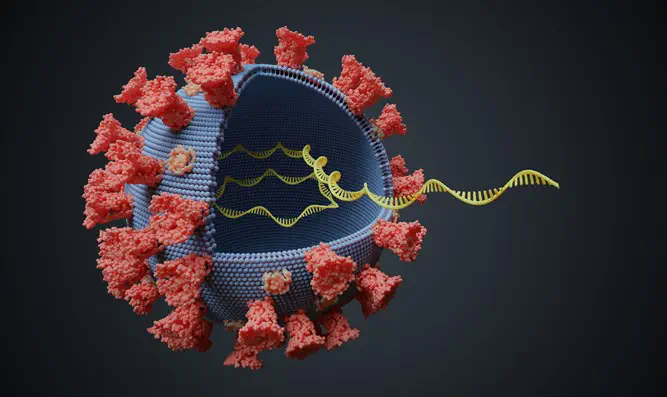
As the United Kingdom enters its strictest lockdown since early spring, fears are mounting that a new strain of the coronavirus, dubbed the “South African variant,” will prove more resilient than the previous most widespread strain to any of the coronavirus vaccines currently available or under development.
Speaking on Monday evening, UK Prime Minister Boris Johnson warned that the weeks ahead “will be the hardest yet” as he rolled out sweeping new restrictions on the UK population, to become almost immediately effective. These include the closure of all schools and universities, and also of all non-essential stores and businesses. The measures are to remain in place until February 22nd at the very least.
Calling the new coronavirus mutation “a game changer,” Mark Woolhouse, professor of Infectious Disease Epidemiology at Edinburgh University said that “the Prime Minister’s announcement of a full national lockdown [had been] almost inevitable.” He also warned that, “Given the estimates of the transmissibility of the new variant, this lockdown may not be as effective as [previous ones] … and it may be that the best we can hope for is that the situation does not deteriorate further.”
The latest estimates are that the new variant is 50% more contagious than previous strains, although data have yet to confirm that the mutation is more deadly. The main concern, however, is that vaccines being billed as “the end to the coronavirus era” will no longer deliver what many have been counting on.
According to Dr. Julian W. Tang, clinical virologist and honorary associate professor at Leicester University, “The South African variant differs significantly from the UK variant in several ways that may impact on vaccine effectiveness.”
He explains that although “both variants share the N501Y mutation … where the virus binds to the host cell … the South African variant has two more mutations … [which] may interfere more with vaccine effectiveness. This does not mean that the existing Covid-19 vaccines will not work at all, just that the antibodies induced by the current vaccines may not bind and neutralize the South African variant as well as it would the other circulating viruses.”
His words were confirmed by Francois Balloux, a professor at UCL Genetics Institute, who went further and noted that, “The South African variant carries a mutation in the spike protein … which has been shown to reduce antibody recognition. As such, it helps the [coronavirus] to bypass immune protection provided by prior infection or vaccination.”
Dr. Simon Clarke, associate professor of cellular microbiology at Reading University, added that, “The South African variant is a more difficult virus to track, as it lacks some mutations in the spike … which make it easily detectable by the PCR test” that is widely used in many countries to test for coronavirus.
Prof. Tang estimates that “vaccines can be modified to be more close-fitting and effective against this variant,” but that it will take at least “a few months” before this can be achieved.
Meanwhile, of course, additional mutations are likely to be discovered, given that to date, literally thousands of mutations have been identified, all over the world.
